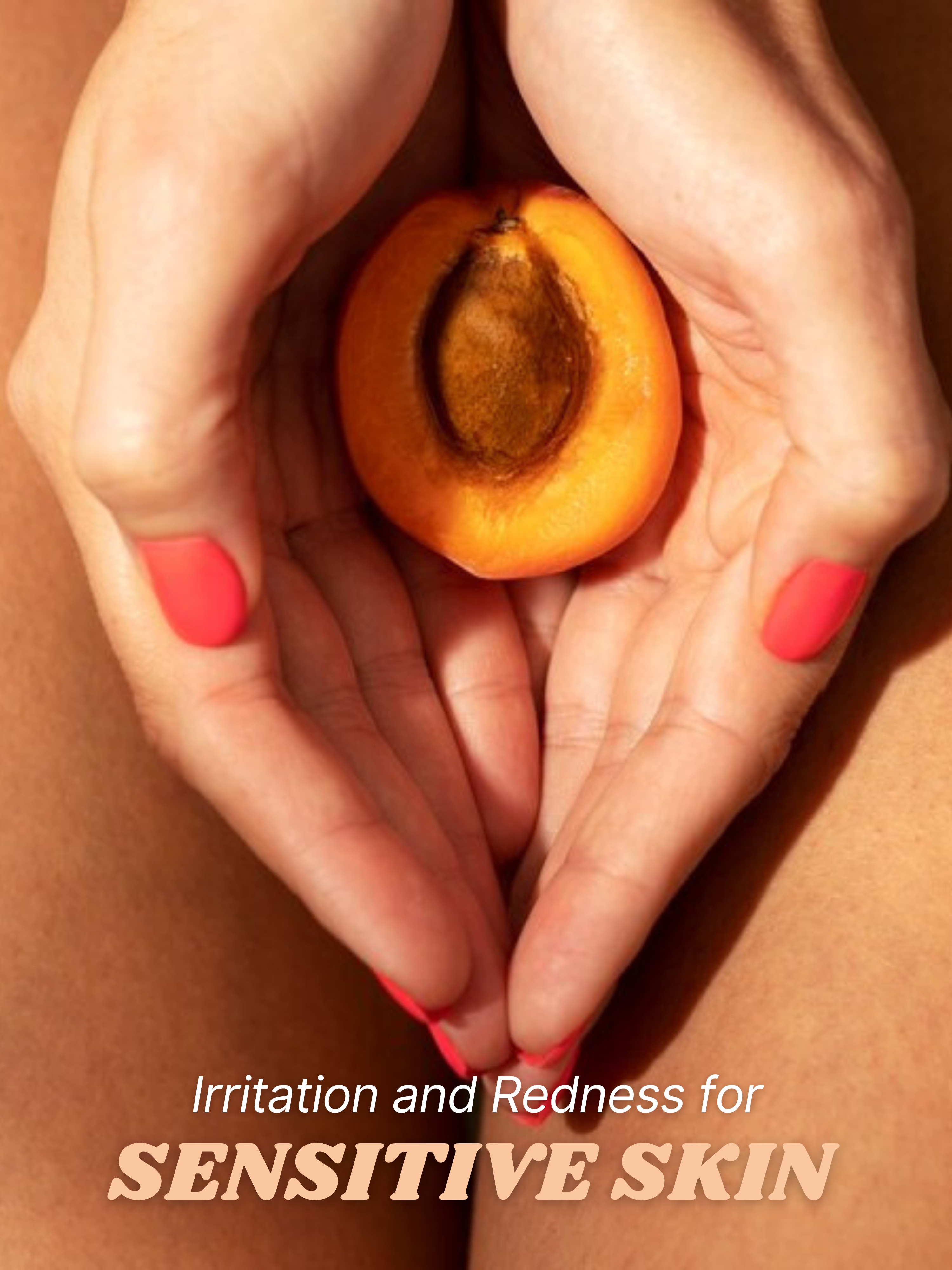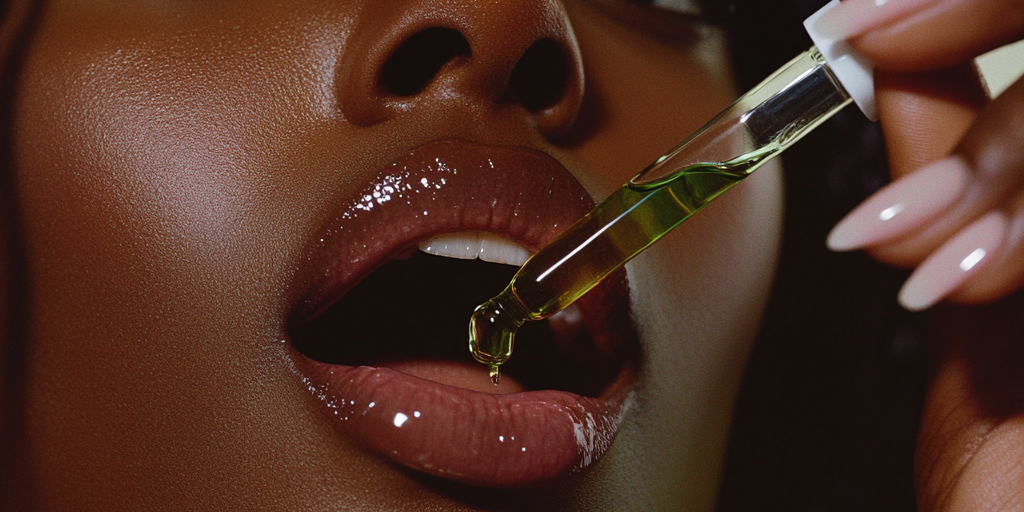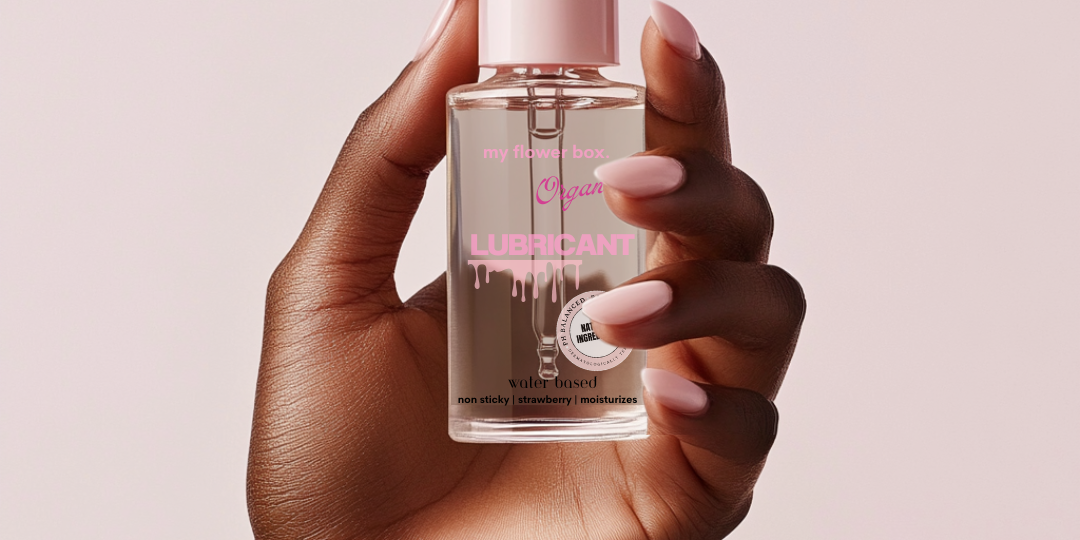Sensitive Skin Solutions: Soothing Irritation and Redness Around the Vagina

Sensitive skin around the vagina is a common concern that many women face, leading to discomfort, irritation, and redness. Understanding the causes and implementing gentle care practices are crucial for maintaining vaginal health. In this article, we'll delve into the characteristics of sensitive skin, explore common irritants, and provide solutions to soothe and protect this delicate area.
What is a Sensitive Skin?
Sensitive skin is characterized by heightened reactions to environmental factors or certain products. The skin around the vagina is particularly susceptible to irritation due to its thin and delicate nature.
The skin around the vagina is highly sensitive and can be prone to irritation and redness due to various factors. Understanding these causes is crucial for effective prevention and management. Here are common reasons for irritation and redness around the vagina:
1. Harsh Soaps and Cleansers
Using soaps or cleansers with harsh chemicals, fragrances, or high pH levels can disrupt the natural balance of the skin. This can lead to irritation, dryness, and redness.
2. Synthetic Fabrics in Underwear
Wearing underwear made from synthetic materials, such as nylon or polyester, can trap moisture and heat, creating an environment conducive to irritation. These fabrics may also lack breathability, causing friction against the delicate skin.
3. Allergens and Irritants in Personal Care Products
Certain ingredients in lotions, creams, or intimate hygiene products can be allergens or irritants. Fragrances, dyes, and preservatives are common culprits that may lead to skin reactions.
4. Hormonal Changes
Fluctuations in hormonal levels, especially during menstruation, pregnancy, or menopause, can impact the skin's sensitivity. Changes in estrogen levels can affect the moisture and thickness of the skin, contributing to irritation.
5. Infections
Bacterial or fungal infections, such as yeast infections or bacterial vaginosis, can cause redness and irritation around the vagina. These infections disturb the natural balance of the vaginal flora, leading to skin discomfort.
6. Skin Conditions
Certain skin conditions, such as eczema, psoriasis, or dermatitis, can affect the genital area, causing redness and inflammation. Managing these conditions is essential for preventing recurrent irritation.
Importance of Addressing Sensitive Skin
Proactive care is essential for preventing and alleviating discomfort. Ignoring sensitive skin concerns can lead to more severe issues, making it crucial to adopt a gentle and informed approach to vaginal health.
Understanding Sensitive Skin
Sensitive skin around the vagina requires careful attention and understanding to address its unique needs. Delving into the characteristics, contributing factors, and ways to differentiate normal and sensitive skin is crucial for effective care.
Characteristics of Sensitive Skin
Sensitive skin is prone to heightened reactions to various stimuli, manifesting in symptoms such as redness, itching, burning, or discomfort. In the vaginal area, these reactions can be more pronounced due to the thin and delicate nature of the skin.
- Redness and Inflammation: Sensitive skin is often characterized by visible redness and inflammation, indicating an increased sensitivity to irritants.
- Itching and Discomfort: Individuals with sensitive skin may experience persistent itching or discomfort, which can be triggered by various factors.
- Tingling or Burning Sensations: Sensations of tingling or burning may occur, signaling that the skin is reacting to certain substances or environmental conditions.
- Vulnerability to Irritants: Sensitive skin reacts more strongly to external factors, making it more vulnerable to irritants commonly found in personal care products or environmental pollutants.
Factors Contributing to Sensitivity
Several factors contribute to the heightened sensitivity of the skin around the vagina, making it essential to identify and address these elements:
- Hormonal Fluctuations: Changes in hormonal levels, particularly estrogen, can impact skin thickness, moisture levels, and overall sensitivity. Hormonal fluctuations occur during menstrual cycles, pregnancy, and menopause.
- Allergens and Irritants: Exposure to allergens and irritants present in personal care products, laundry detergents, or synthetic fabrics can trigger skin reactions.
- Environmental Factors: Harsh weather conditions, excessive humidity, or exposure to UV radiation can exacerbate sensitivity.
- Genetic Predisposition: Some individuals may have a genetic predisposition to sensitive skin, making them more susceptible to environmental triggers.
Differentiating Normal and Sensitive Skin
Understanding how to differentiate between normal and sensitive skin is crucial for tailoring an effective skincare routine:
- Skin Reactivity: Sensitive skin tends to react quickly to various stimuli, while normal skin shows less reactivity.
- Tolerance to Products: Individuals with sensitive skin may find it challenging to tolerate certain skincare or personal care products that individuals with normal skin might use without issue.
- Frequency of Reactions: Sensitive skin is characterized by more frequent and intense reactions, such as redness or itching, compared to normal skin.
- Persistent Symptoms: Symptoms of sensitivity, such as redness or discomfort, persist for a more extended period in individuals with sensitive skin.
- Response to Environmental Factors: Sensitive skin reacts more prominently to environmental factors like temperature changes, wind, or exposure to allergens.
Understanding these distinctions empowers individuals to choose appropriate skincare products, adopt gentle care practices, and seek professional advice when needed. In the next sections, we will explore common culprits of irritation and provide solutions for soothing and maintaining the health of sensitive skin around the vagina.
Gentle Care Practices

Caring for sensitive skin around the vagina requires adopting gentle practices to minimize irritation and maintain optimal health. Here are key strategies for ensuring a soothing and supportive skincare routine:
Choosing the Right Hygiene Products
- Fragrance-Free Soaps and Cleansers:
- Opt for fragrance-free, hypoallergenic soaps and cleansers to reduce the risk of irritation. Fragrances can contain harsh chemicals that may disrupt the delicate balance of the skin.
- pH-Balanced Products:
- Use pH-balanced cleansers designed for the vaginal area. Maintaining the natural pH level helps support the growth of beneficial bacteria and prevents overgrowth of harmful microorganisms.
Opting for Breathable Fabrics in Underwear
- Cotton Underwear:
- Choose underwear made of breathable, natural fabrics like cotton. Cotton allows air circulation, minimizing moisture buildup and reducing the risk of irritation.
- Loose-Fitting Clothing:
- Avoid tight-fitting clothing that can cause friction and chafing. Opt for loose, comfortable clothing to reduce contact and promote airflow.
Avoiding Irritants in Laundry Detergents
- Hypoallergenic Detergents:
- Use hypoallergenic and fragrance-free laundry detergents to wash underwear and clothing. This helps prevent exposure to potential irritants that may linger on fabrics.
- Double Rinsing:
- Ensure thorough rinsing of clothing to remove any detergent residue. Residual chemicals can contribute to skin irritation.
Practicing Proper Hygiene Habits
- Avoiding Douching:
- Douching disrupts the natural balance of the vagina, increasing the risk of irritation and infections. Practice gentle cleansing without the use of harsh methods.
- Pat-Dry After Bathing:
- Gently pat the vaginal area dry after bathing instead of vigorous rubbing. This helps prevent unnecessary friction that can exacerbate sensitivity.
Managing Hormonal Changes Through Lifestyle Choices
- Maintaining a Balanced Diet:
- Consume a balanced diet rich in vitamins and minerals to support overall skin health. Include foods that promote hormonal balance.
- Regular Exercise:
- Engage in regular physical activity to help regulate hormonal fluctuations. Exercise contributes to overall well-being and can positively impact skin health.
These gentle care practices aim to create a supportive environment for sensitive skin, reducing the risk of irritation and promoting comfort. In the following section, we'll explore natural remedies that can be incorporated to soothe sensitive skin around the vagina.
Natural Remedies for Soothing
In addition to adopting gentle care practices, natural remedies can be effective in soothing sensitive skin around the vaginal area. These remedies harness the power of natural ingredients known for their calming and anti-inflammatory properties:
Aloe Vera and Its Anti-inflammatory Properties
- Apply Aloe Vera Gel:
- Aloe vera is renowned for its anti-inflammatory and cooling properties. Applying pure aloe vera gel to the sensitive skin can help soothe irritation and reduce redness.
Chamomile for Calming Effects
- Chamomile Baths:
- Add chamomile tea bags to a warm bath. Chamomile is known for its calming effects and can provide relief to irritated skin.
Coconut Oil as a Moisturizing Agent
- Apply Coconut Oil:
- Coconut oil is a natural moisturizer with anti-inflammatory properties. Gently apply a small amount to the sensitive skin to alleviate dryness and irritation.
Witch Hazel for Its Soothing Properties
- Use Witch Hazel Compresses:
- Witch hazel is a natural astringent with soothing properties. Soak a cotton pad in witch hazel and apply it as a compress to calm irritated skin.
Yogurt and Probiotics for Maintaining a Healthy Balance
- Probiotic-Rich Foods:
- Incorporate yogurt and other probiotic-rich foods into your diet. Probiotics help maintain a healthy balance of beneficial bacteria, supporting the natural flora of the vaginal area.
These natural remedies can complement gentle care practices and provide additional relief for sensitive skin. It's important to note that individual responses may vary, and it's advisable to perform patch tests before applying these remedies extensively. If irritation persists or worsens, consulting a healthcare professional is recommended.
Conclusion
In conclusion, caring for sensitive skin around the vagina requires a combination of gentle practices, natural remedies, and, when necessary, medical intervention. Understanding the specific needs of the skin in this area and adopting a proactive approach to skincare can lead to improved comfort and overall well-being.
People May Ask
- A: Yes, fragrances in soaps can be irritating. Opt for fragrance-free, pH-balanced cleansers to minimize the risk.
- A: Perform patch tests for personal care products, consult healthcare professionals for allergy testing, and monitor lifestyle factors.
- A: Yes, natural remedies like aloe vera, chamomile, and coconut oil can provide relief. However, consult a healthcare professional for persistent issues.
- A: Yes, tight clothing can cause friction and irritation. Opt for breathable fabrics and loose-fitting garments.
- A: If symptoms persist or worsen, consult a healthcare professional for proper diagnosis and treatment.
Embrace Comfort with MyFlowerBox: Your Sensitive Skin Ally
Are you tired of dealing with irritation and redness around the vagina? MyFlowerBox is here to help you navigate sensitive skin issues. Take charge of your vaginal health by implementing the gentle care practices and natural remedies outlined in this article. MyFlowerBox offers a range of intimate care products specifically designed for sensitive skin, providing comfort and relief. Embrace a soothing journey towards optimal skin health with MyFlowerBox – because your comfort matters.
0 comments





